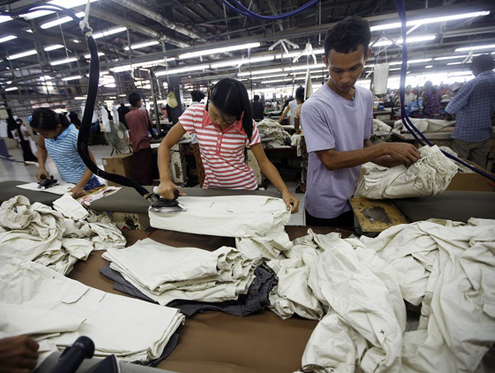More than a month into the new National League for Democracy (NLD) government’s tenure, key pieces of economic policy remain in limbo, leaving both foreign investors and human rights activists uncertain about the future.
Since it began its transition to civilian rule five years ago, Burma has attracted the attention of many would-be investors. But its appeal — based on its wealth of natural resources and abundance of cheap labour — has been dimmed by the country’s continuing reputation for human rights abuses and unresolved legal issues.
With a new administration now in power, however, expectations are high that some of these hurdles could soon be cleared, provided the government acts to address both foreign and domestic concerns by introducing new legislation.
“This is a key moment for the NLD to show their commitment to regulation that fulfills their duty to protect human rights, ensure accountability and provide access to remedy for those whose rights are violated during the process of economic development,” said Daniel Aguirre, a Rangoon-based legal advisor with the International Commission of Jurists (ICJ).
But even as he notes that Burma’s investment, resource extraction and land regulation regimes are in flux, Aguirre says the NLD shouldn’t be in too much of a hurry to pass laws. “These laws must be drafted carefully as Myanmar [Burma] will have to live with their consequences for the foreseeable future,” he said.
For their part, investors are looking less for specific pieces of legislation and more for general signs of how the new government will regulate the private sector, according to Dr. Aung Thura, founder and CEO of the market research firm Thura Swiss.
Describing the attitude of his clients, he says: “It’s more looking at ‘Is the country stable? How will the new administration make decisions? Will their decisions be ordered or arbitrary?'”
While many in the business and human rights fields have been pushing for new investment laws for many years, a new law submitted by the Directorate of Investment and Company Administration in late 2015 was not passed.
“Instead, amendments were made giving more power to state and regional governments to grant permits for certain types of investment. As such, we are still operating under the previous Foreign Investment Law and Myanmar Citizens Investment law,” said ICJ’s Aguirre.
Meanwhile, progress has also been made in developing a new policy governing use of land, although as Aguirre points out, it so far remains just a policy and is not close to being made into law.
“The previous government adopted a national land use policy through a long process of consultation. While it is by no means perfect, it addressed some of the key contentious issues in Myanmar … The new government should build upon this consultation process and ensure that a new land law is adopted,” he said.
[related]
Speaking to DVB, Dr. Aung Thura said that upgrading and reforming key sectors like finance and agriculture will be a slow process no matter what laws are passed. As for international investors, he foresees the markets being kindest to companies that can make peace with risk and devote serious on-the-ground resources. “You really need to spend a lot of time here … you can’t just show up once a month.”
For Aguirre, new and better laws are the only way to stop the corruption that has long defined so many sectors of Burma’s economy.
“We think it is vital that all investment laws, whether national or international, protect Myanmar’s right to regulate in the public interest, including for the protection of human rights.”



